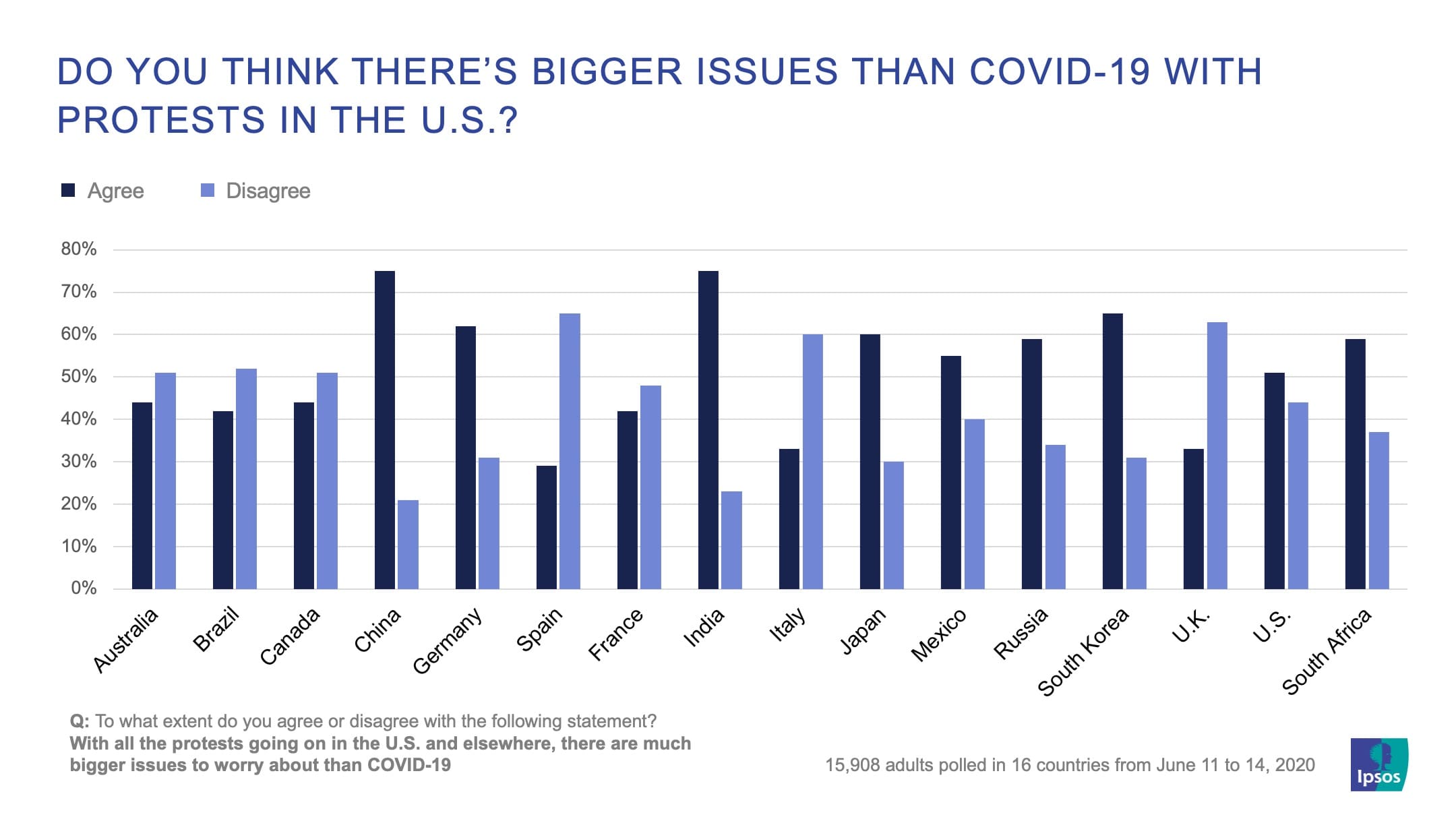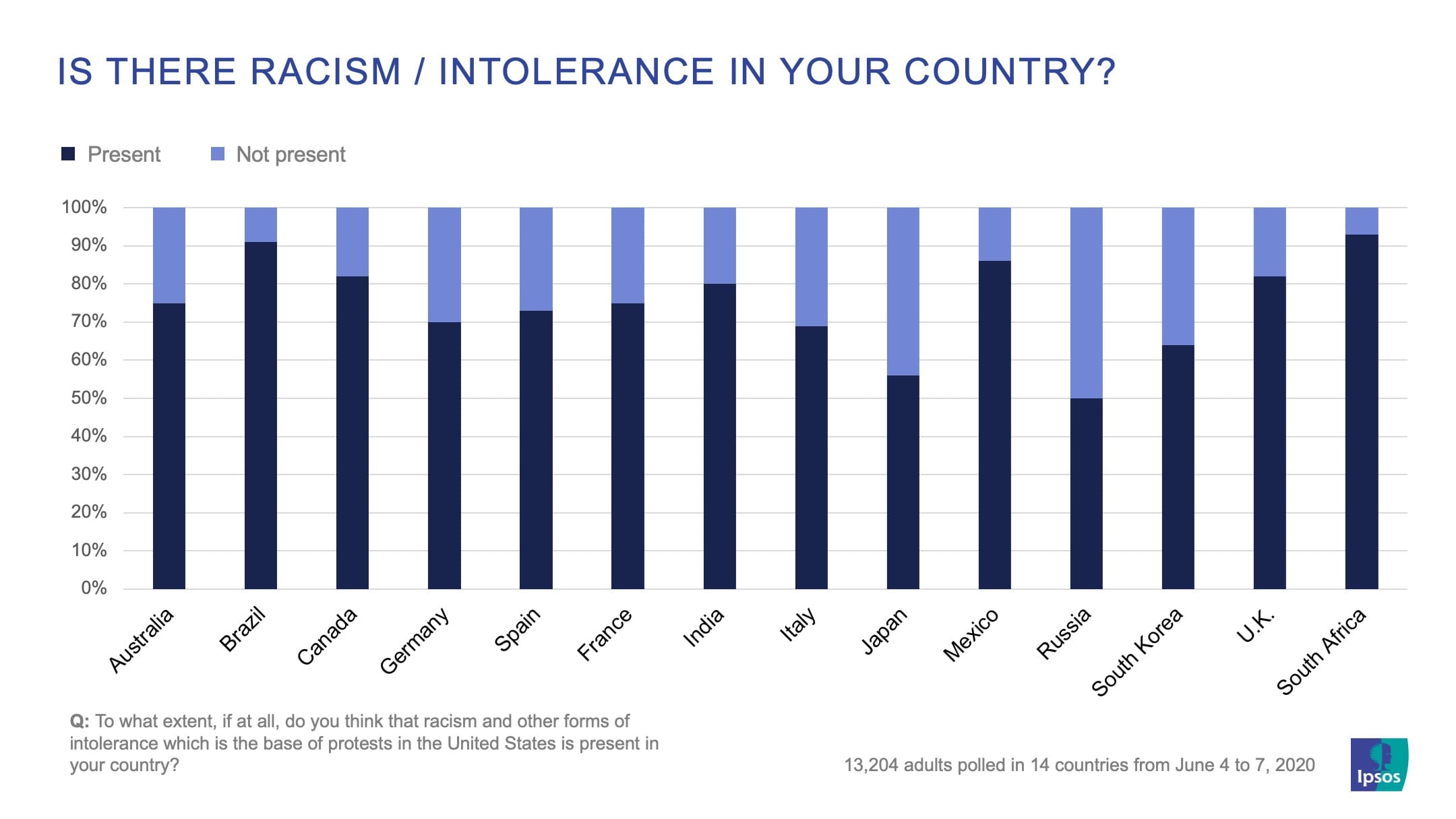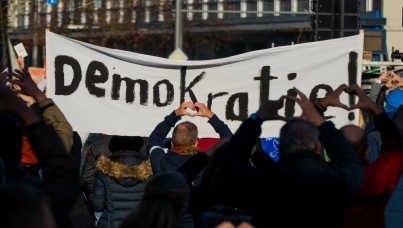More people believe there are bigger issues than COVID-19 amid race protests in U.S. and globally
A majority of people in nine out of 16 major countries say there are much bigger issues to worry about than the coronavirus with all protests going on in the United States and elsewhere, according to the latest Ipsos survey.
People in China and India (75%), South Korea (65%), Germany (62%) and Japan (60%) are most likely to agree with this in a poll of nearly 16,000 respondents conducted from June 11 to 14. Those in European countries of Spain (65%), the United Kingdom (63%) and Italy (60%) are most likely to disagree.
France is the most divided country on the issue with only 6 percentage points separating those that agree and disagree with the statement that there are bigger problems to worry about than COVID-19. The U.S. is tied with Canada and Australia for having the second smallest margin between respondents that agree and disagree at 7 points.

Added to this, in a separate Ipsos poll conducted in 14 major countries outside of the United States from June 4 to 7, a majority in 13 countries said racism and other forms of intolerance, which are the base of the protests in the U.S., is present in their country.
People in emerging markets of South Africa (93%), Brazil (91%) and Mexico (86%) are mostly likely to agree with this, followed by Canada and the U.K. (82%).
Russia is the only country surveyed where respondents are evenly divided on the question at 50%. Other countries where about a third of people said racism and other forms of intolerance is not present are Japan (44%), South Korea (36%) and Italy (31%).




